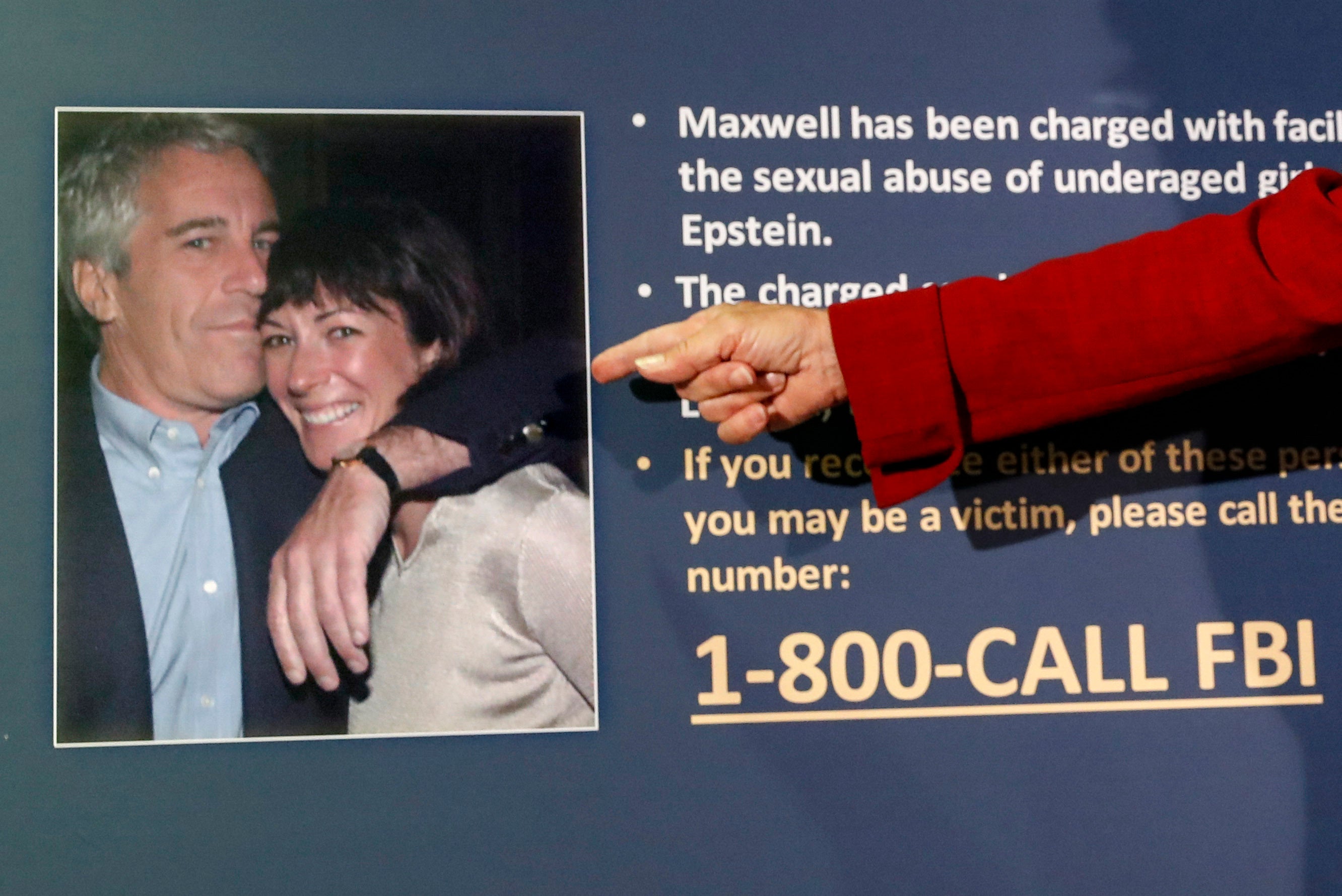Lawyer: Epstein's ex Maxwell faces onerous jail conditions
A lawyer for a British socialite charged with procuring teenage girls in the 1990s for financier Jeffrey Epstein to sexually abuse says her client's sleep is interrupted every 15 minutes in jail to ensure she is breathing

Your support helps us to tell the story
From reproductive rights to climate change to Big Tech, The Independent is on the ground when the story is developing. Whether it's investigating the financials of Elon Musk's pro-Trump PAC or producing our latest documentary, 'The A Word', which shines a light on the American women fighting for reproductive rights, we know how important it is to parse out the facts from the messaging.
At such a critical moment in US history, we need reporters on the ground. Your donation allows us to keep sending journalists to speak to both sides of the story.
The Independent is trusted by Americans across the entire political spectrum. And unlike many other quality news outlets, we choose not to lock Americans out of our reporting and analysis with paywalls. We believe quality journalism should be available to everyone, paid for by those who can afford it.
Your support makes all the difference.A lawyer for Ghislaine Maxwell a British socialite charged with finding girls in the 1990s for financier Jeffrey Epstein to sexually abuse said Tuesday that her client is awakened every 15 minutes in jail while she sleeps to ensure she's breathing.
Attorney Bobbi Sternheim told a Manhattan judge that Maxwell faces more restrictive conditions than inmates convicted of terrorism or murder. Maxwell has no history of mental health issues or suicidal ideation and no criminal history, either, she said.
She asked a judge to intervene on her client’s behalf to improve her conditions at the Metropolitan Detention Center in Brooklyn. In her request, Sternheim made no direct reference to Epstein taking his life in August 2019 in his cell at another federal lockup, in Manhattan.
U.S. District Judge Alison J. Nathan instructed defense lawyers and prosecutors to confer over the next week over Sternheim's request that the Brooklyn facility's warden directly address the concerns.
A spokesperson for prosecutors declined comment. A message for comment was sent to the Federal Bureau of Prisons spokespeople.
Maxwell, 58, has pleaded not guilty to charges that she procured three girls for Epstein to abuse in the mid-1990s. She has been held without bail while she prepares for a July trial.
On Monday, prosecutors notified the judge that Maxwell was put in quarantine last week for 14 days after someone who works in her area of the jail tested positive for the coronavirus. She may not meet with her defense team during that period.
In their letter, prosecutors said the 13 hours a day Maxwell gets to review trial materials on a laptop computer is more time than any other prisoner is allotted.
The reference bothered Sternheim, who said Maxwell faces burdens unmatched by other inmates and has been mistreated. She noted that the latest production of evidence by prosecutors was over one million documents and Maxwell lacked enough time to study the material.
She said Maxwell was initially quarantined without soap or a toothbrush and that medical and psychology staff stopped checking on her, failing to tell her the results of her COVID-19 tests or what to do if she becomes symptomatic. Prosecutors said Monday that her test result for the coronavirus was negative, and she will be tested again at the conclusion of her quarantine.
The lawyer said Maxwell is kept in what is, in effect, solitary confinement and she is excessively and invasively searched and monitored 24 hours a day, including camera surveillance in her cell and a camera following her movement whenever she is permitted to leave her cell.
“And despite non-stop in-cell camera surveillance, Ms. Maxwell’s sleep is disrupted every 15 minutes when she is awakened by a flashlight to ascertain whether she is breathing,” she wrote.